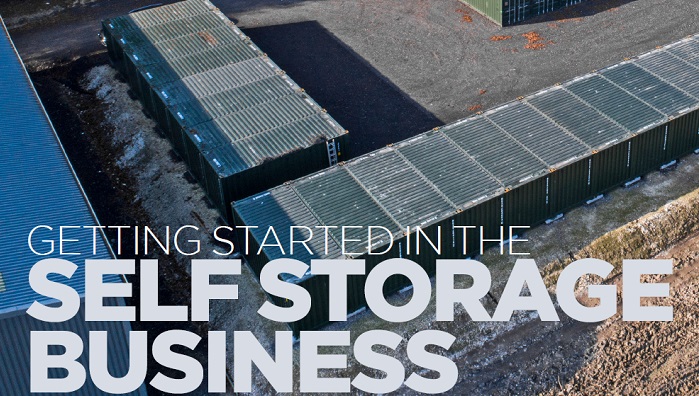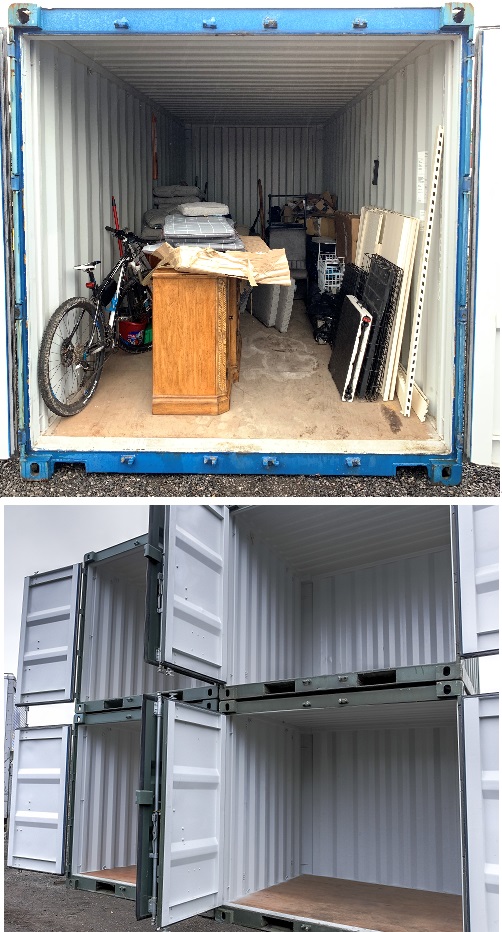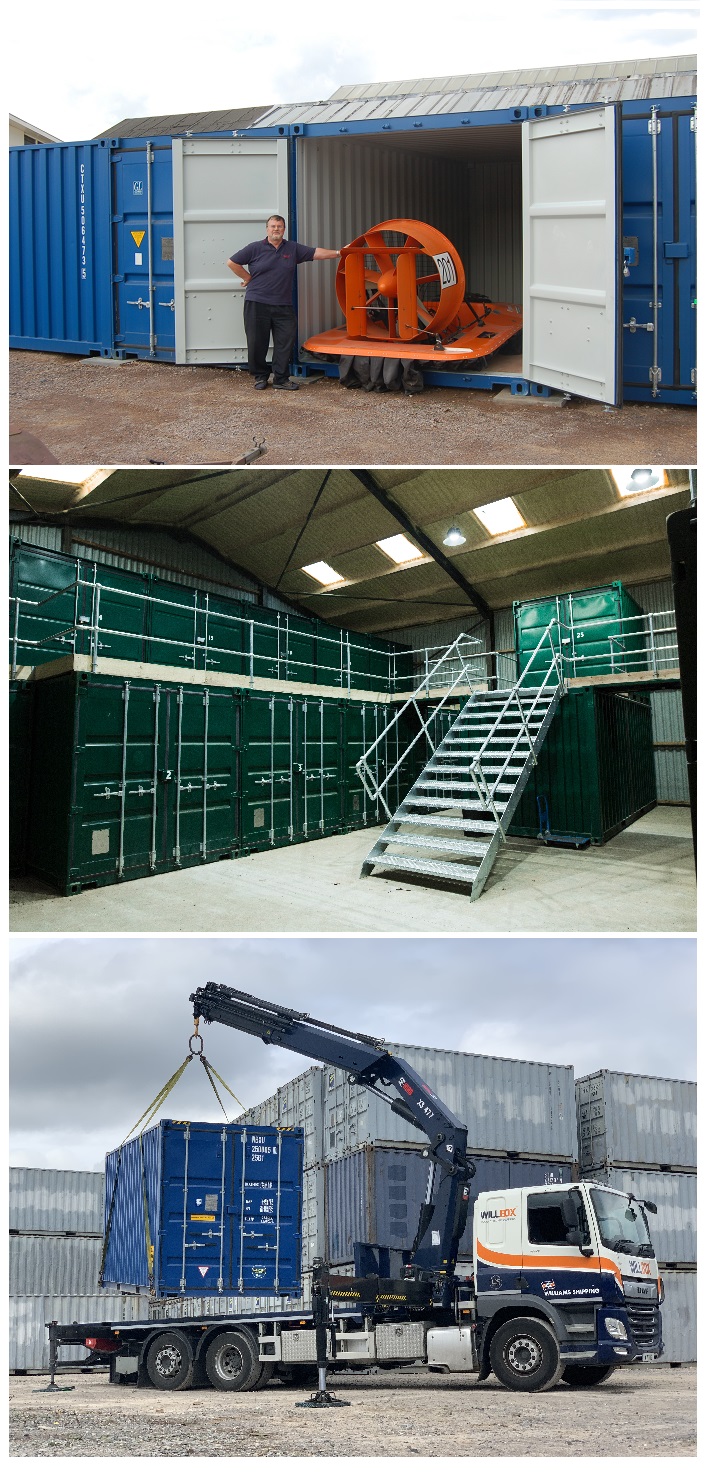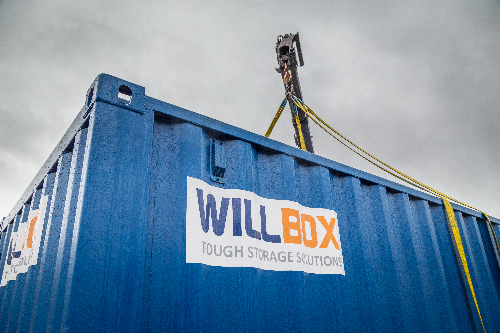Self storage is an increasingly popular way for removals businesses to make extra money. With the rising costs of running a business and pressures on time, leaving land unutilised just doesn’t make sense. Chris Williams, Managing Director of shipping container supplier Willbox, explains how to get started.

While for some, splashing out on a purpose-built storage facility might be an option, using shipping containers enables you to start building a profitable business without a huge upfront investment and to scale-up easily as the business develops.
 First, it’s vital to properly assess the site before you get started. Look at the access routes into the area and into the site itself. Is your site close to a populated area? Once on site, is there a route for customers to get to their storage units easily? Customers should be able to drive right up to their unit, ideally without having to cross car parks or operational areas for any other businesses on site.
First, it’s vital to properly assess the site before you get started. Look at the access routes into the area and into the site itself. Is your site close to a populated area? Once on site, is there a route for customers to get to their storage units easily? Customers should be able to drive right up to their unit, ideally without having to cross car parks or operational areas for any other businesses on site.
If the site is on a steep slope, you may want to carry out some groundworks. However, for moderately uneven surfaces you can level containers using levelling feet, sleepers, or blocks.
The site surface is also important as high volumes of traffic can turn soil into slush. You may want to put ground protection down, or even invest in concrete if you are considering stacked containers.
Security is also important to consider early on. You may be thinking of fencing off the area, in which case you will need to work out how people will get through the gate – will you issue codes or will the site only be open at certain times? You will need floodlights, but you might also want smaller lights localised or even inside the individual units. CCTV or manned security options may be advisable depending on your site’s location and your customers. Make sure you have plenty of heavy-duty padlocks available for your customers to use.
Security considerations will be different in rural and urban areas. An aerial survey is a good way to help you understand the site and will give you information about what lies beyond your boundaries.
Planning Consent
While individual shipping containers are often considered temporary structures, for a multi-unit self storage site, in the UK at least, some sort of planning permission will almost certainly be necessary. The B8 ‘usage class’ incorporates a wide range of storage types and will most likely be the one you need. However, every planning authority is different and the difficulty of obtaining planning hugely varies; so start the conversation early. You may also need consent for any other structures – a site office, fencing, concrete siting pads, signage, etc.
If you are near any residential areas, think about the disruption to neighbours in terms of traffic, noise and lighting. Consulting them in advance will help you mitigate their concerns and improve your long-term relationship with them.
Doing the Maths
Of course, the most important question is: how much money could you make from your site?
In order to work this out, obtain an accurate scale map of your site and use it to play with different layout options. A mix of unit sizes will help you appeal to a range of customers. Containers come as standard in 10’, 20’, 40’, 45’ and ‘high cube’ (taller versions of these). However, larger units can also be split by using partitions and adding extra doors.
Do some research on other self store sites in the area and how much they charge. From this you can work out how much to charge for each unit type, and how much revenue your site could generate.
 New or Used?
New or Used?
Shipping containers are incredibly tough and have a long shelf life. If you are on a budget, used containers are a great way forward and can be repaired and repainted. However, if you are aiming to create a more up-market facility, new containers are more aesthetic and may have additional features, such as extra ventilation.
Container Types
Containers come in a number of lengths and heights, but there are other options too. For example, you can get containers with side doors, which might benefit people or businesses with extremely large items to store. Tunnel containers can be accessed from both ends. Most containers can be stacked – in which case you will need stairs and possibly a walkway.
If you want to add additional facilities to your site, you can also get containerised toilets, offices and kitchen blocks.
Shipping containers are endlessly versatile and relatively straightforward to customize. Containers can be coated inside with an anti-condensation material to prevent moisture build-up. You can also add new flooring, lights and electric points, partitions, and even extra doors and windows. If you have an awkwardly sized site, or if you have ideas for doing something different, talk to your container supplier about what’s possible.
Delivery and Positioning
Empty containers are easy to move with a forklift. If you don’t have one, make sure your container company will be delivering with a crane vehicle so that they can place the containers exactly where you need them.
Purchase Options
Compared to the costs of putting up a permanent structure, shipping containers are incredibly cheap. But even so, not everyone can afford to just buy them outright. Fortunately, there are a number of finance options, including lease-purchase and rent-to-buy to spread the cost. You can even hire the containers on an ongoing basis – an option to consider if you intend your self storage site to be a short-term project.
Marketing your New Site
If you have an existing business, start by promoting your self storage options to your customers, even if their business doesn’t necessarily seem to fit – everyone knows someone who needs more storage.
Make sure your site is listed on Google Maps by creating a Google My Business listing. Social media is also a good way to raise awareness for free.
Ideally you should start to promote your site before it is up and running – make sure to be clear about the launch date in your communications. An opening day event is a great way to generate some excitement about your business.
Good luck!

About Willbox
Willbox is one of the country’s leading shipping container suppliers and also fabricates modified containers for self storage sites as well as many other industries. The company has 20 depots nationwide and an in-house fleet of delivery trucks with hiab cranes. In addition to supplying containers, Willbox has a range of products and services designed specifically for self storage sites and has worked on over 100 projects in this field.